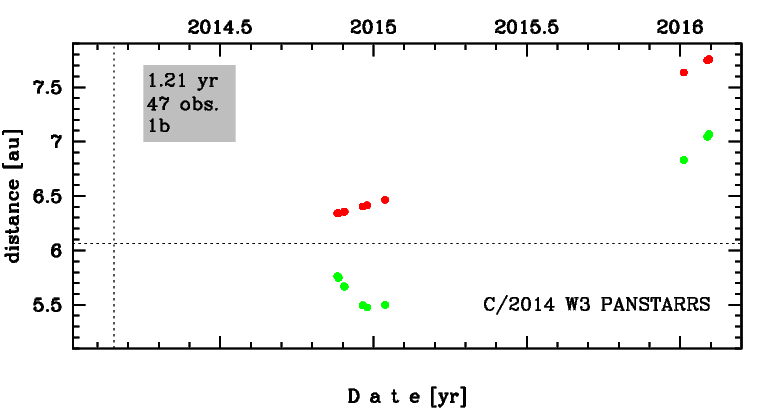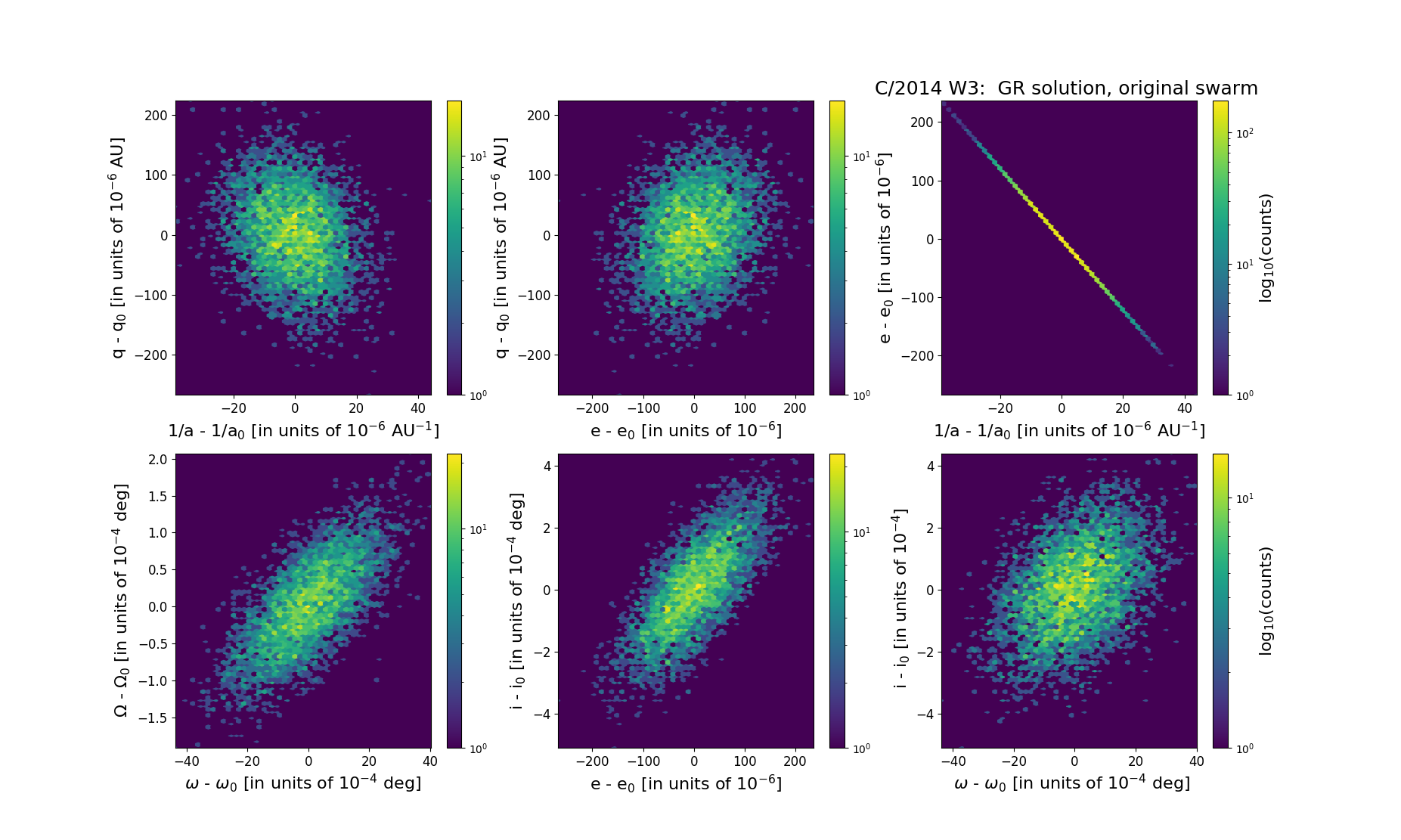C/2014 W3 PANSTARRS
more info
Comet C/2014 W3 was discovered on 18 November 2014 with Pan-STARRS 1 telescope (Haleakala), that is about 9 months after its perihelion passage. This comet was rarely observed until 3 February 2016.
Comet had its closest approach to the Earth on 10 January 2014 (5.204 au), about 1.5 month before its perihelion passage. At the moment of discovery C/2014 W3 was 1.5 month before the next approach to the Earth (5.466 au).
Solution given here is based on data spanning over 1.21 yr in a range of heliocentric distances: 6.34 au – 6.064 au (perihelion) – 7.76 au.
This Oort spike comet suffers moderate planetary perturbations during its passage through the planetary system that lead to escape the comet from the planetary zone on a hyperbolic orbit (see future barycentric orbit).
Comet had its closest approach to the Earth on 10 January 2014 (5.204 au), about 1.5 month before its perihelion passage. At the moment of discovery C/2014 W3 was 1.5 month before the next approach to the Earth (5.466 au).
Solution given here is based on data spanning over 1.21 yr in a range of heliocentric distances: 6.34 au – 6.064 au (perihelion) – 7.76 au.
This Oort spike comet suffers moderate planetary perturbations during its passage through the planetary system that lead to escape the comet from the planetary zone on a hyperbolic orbit (see future barycentric orbit).
| solution description | ||
|---|---|---|
| number of observations | 47 | |
| data interval | 2014 11 18 – 2016 02 03 | |
| data type | observed only after perihelion (POST) | |
| data arc selection | entire data set (STD) | |
| range of heliocentric distances | 6.34 au – 7.76au | |
| detectability of NG effects in the comet's motion | NG effects not determinable | |
| type of model of motion | GR - gravitational orbit | |
| data weighting | YES | |
| number of residuals | 93 | |
| RMS [arcseconds] | 0.46 | |
| orbit quality class | 1b | |
| orbital elements (barycentric ecliptic J2000) | ||
|---|---|---|
| Epoch | 1706 12 24 | |
| perihelion date | 2014 02 25.70581583 | ± 0.01021280 |
| perihelion distance [au] | 6.06081052 | ± 0.00006703 |
| eccentricity | 0.99991869 | ± 0.00006426 |
| argument of perihelion [°] | 158.762996 | ± 0.001223 |
| ascending node [°] | 286.347528 | ± 0.000057 |
| inclination [°] | 90.210504 | ± 0.000135 |
| reciprocal semi-major axis [10-6 au-1] | 13.42 | ± 10.60 |
| file containing 5001 VCs swarm |
|---|
| 2014w3a1.bmi |

